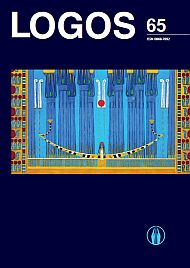Heideggerio Jaunystės Filosofija: Nuo Amžinybės Garbinimo Iki Laiko Suabsoliutinimo
The Philosophy of the Young Heidegger: From Adoration of Eternity to Absolutization of Time
Author(s): Povilas AleksandravičiusSubject(s): Christian Theology and Religion, Metaphysics, Existentialism, Philosophy of Religion, Hermeneutics
Published by: Visuomeninė organizacija »LOGOS«
Keywords: Heidegger; eternity; time; Neo-Kantianism; haecceitas; correlativity; Catholicism;
Summary/Abstract: The article attempts an analysis of the first texts by Martin Heidegger written in 1909–1919. This analysis identifies a central shift in philosophical thought — from theologically-conceived adoration of eternity to philosophical absolutization of time which makes the essence of the first period in the German philosopher‘s thought. Revealed are the young Heidegger’s inveteracy in Catholicism, along with his apologetic disposition, which saw a crisis in 1911. The author also explores Heidegger’s transition to Neo-Kantians of Freiburg University, the battle against psychologism developed there, as well as the Habilitation thesis on Duns Scotus influenced by Rickert and Husserl. The Finding of that thesis gave birth to the concept of correlativity between eternity and time, which, itself based on Hegel’s philosophy, would support the rest of the development in Heidegger’s thought. Concentration on the time concept is analysed in the context of the conversion to Protestantism, which explains Heidegger’s attitudes, but then presents certain essential questions for him.
Journal: LOGOS - A Journal of Religion, Philosophy, Comparative Cultural Studies and Art
- Issue Year: 2010
- Issue No: 65
- Page Range: 23-28
- Page Count: 6
- Language: Lithuanian

